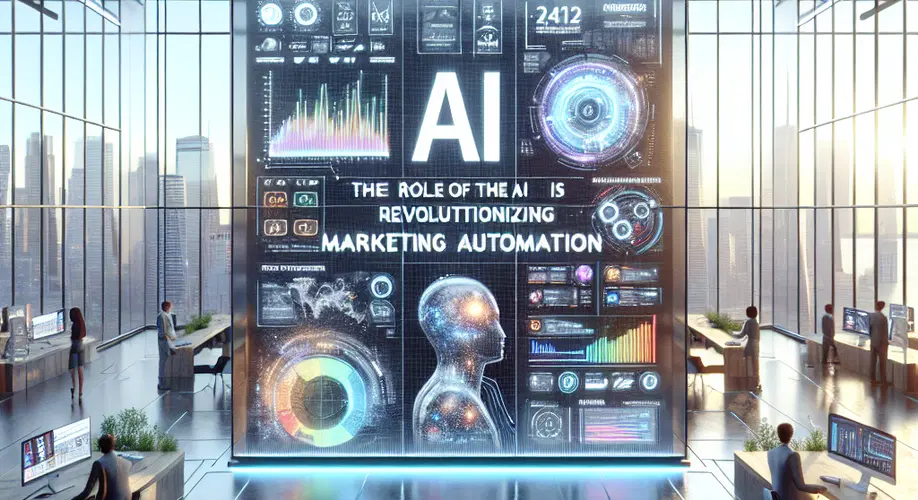
The Role of AI in Revolutionizing Marketing Automation
The advent of artificial intelligence (AI) in marketing automation has marked a significant turning point for businesses worldwide. By leveraging AI algorithms, companies can now predict customer behavior, personalize marketing messages, and optimize campaign strategies with unprecedented precision. This transformative approach not only enhances the efficiency of marketing operations but also significantly boosts the effectiveness of customer engagement. As a result, businesses are able to deliver more relevant content to their target audience, ensuring higher conversion rates and improved customer satisfaction.
Data analytics plays a pivotal role in the modern marketing landscape, enabling organizations to harness the power of big data to make informed decisions. Through the analysis of vast amounts of data, marketers can identify trends, understand customer preferences, and tailor their campaigns to meet the specific needs of their audience. This targeted approach not only increases the relevance of marketing efforts but also maximizes the return on investment (ROI) by focusing resources on the most promising opportunities. As a result, data analytics has become an indispensable tool for marketers aiming to optimize their strategies and achieve superior outcomes.
Conversion optimization is the key to turning potential customers into loyal patrons. By analyzing user behavior on websites and social media platforms, marketers can identify bottlenecks in the conversion process and implement strategic changes to improve the user experience. This often involves A/B testing, landing page optimization, and personalized content strategies that resonate with the target audience. Such optimization efforts not only enhance the effectiveness of marketing campaigns but also significantly increase the likelihood of converting visitors into buyers, thereby driving business success.
Harnessing the Power of Data Analytics for Targeted Campaigns
In the dynamic world of digital marketing, harnessing the power of data analytics is no longer a luxury but a necessity. By analyzing vast amounts of consumer data, businesses can tailor their marketing campaigns to target specific demographics, interests, and behaviors. This targeted approach not only increases the efficiency of marketing efforts but also significantly boosts the chances of converting prospects into loyal customers. Furthermore, data analytics enables marketers to predict future trends and consumer needs, allowing for proactive campaign adjustments.
The integration of predictive analysis into marketing strategies marks a significant leap towards more personalized and effective advertising. Predictive analysis uses historical data and machine learning algorithms to forecast future consumer behavior, enabling marketers to anticipate needs and preferences. This sophisticated approach allows for the creation of highly targeted social media advertising campaigns that resonate with the audience on a deeper level. As a result, businesses can achieve a higher return on investment (ROI) by delivering the right message to the right audience at the right time.
Content marketing, another pillar of digital marketing, benefits immensely from data analytics and predictive analysis. By understanding the types of content that engage different segments of their audience, marketers can craft compelling stories and informational pieces that drive engagement and conversions. This strategic use of content not only educates and entertains the audience but also gently guides them through the conversion funnel. With the right analytics tools, content marketing can become a powerful weapon in a marketer's arsenal, driving both brand awareness and business growth.
Maximizing Conversion Rates through Strategic Optimization
In the realm of digital marketing, maximizing conversion rates is not just about attracting visitors to your website; it's about converting those visits into meaningful interactions and, ultimately, loyal customers. This is where strategic optimization comes into play. By leveraging the latest in AI technology and data analytics, businesses can create highly personalized experiences that resonate with their target audience. Such tailored approaches not only enhance user engagement but also significantly increase the likelihood of conversions, driving business success in a competitive digital landscape.
Strategic optimization in marketing automation involves a meticulous analysis of data to understand customer behavior and preferences. This data-driven approach enables marketers to craft campaigns that are not only relevant but also timely and engaging. By integrating AI and machine learning algorithms, businesses can predict customer actions and tailor their marketing efforts accordingly. The result is a more efficient use of resources, higher conversion rates, and an enhanced customer experience that fosters long-term loyalty.
Finally, the cornerstone of any successful conversion optimization strategy is continuous testing and refinement. A/B testing, for example, allows marketers to compare different versions of a webpage or campaign to determine which performs better in terms of conversion rates. This iterative process ensures that marketing efforts are always optimized for the highest possible return on investment. Coupled with a robust personalization strategy and the effective use of CRM tools, businesses can create a powerful ecosystem that drives conversions and nurtures customer relationships over time.









